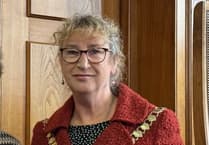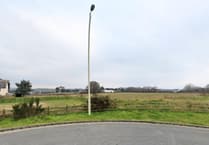PLYMOUTH, Exeter and Torbay councils are backing a new model for local government reorganisation that is at odds with proposals by Devon County Council and district authorities.
Under new shake-up plans, councils are expected to reach a consensus on how Devon can be divided up - but that is far from the case.
Plymouth, Exeter and Torbay Councils have announced their united support for being separate unitary authorities once district and county councils are abolished, with a fourth council consisting of Devon coast and countryside.
They say these proposals respond directly to the government’s call for reform and reflects the shared ambition of Devon’s urban centres to lead the region into a more resilient, responsive and sustainable future.
However district councils, apart from Exeter, want the county to be divided into three local authorities under a 1-4-5 system with Plymouth the one, West Devon, South Hams, Teignbridge and Torbay the four and Exeter, Mid Devon, North Devon, Torridge and East Devon the five.
And Devon County Council, which unveiled its plan in September, wants a new local authority covering roughly the same area as is now covered by the county council and the eight district councils while retaining Plymouth and Torbay councils.
In the future, all the councils providing local services will be unitary to simplify the local government structure.
All proposals have to be submitted by November 28 and the government will decide which one to take forward.
In a statement, Plymouth and Exeter council leaders said that large urban areas like theirs and Torbay are “the engines of growth for both urban and rural communities”.
“They drive investment, create jobs, and deliver services that reach far beyond their boundaries into surrounding towns and villages.”
The fourth unitary council they are supporting would be one based on coast and countryside and focused on dealing with rural issues.
“This will centre on a town-hub model, with market towns acting as vital centres, serving their local communities and surrounding areas,” they said.
Exeter City Council says it has long championed coordinated growth across its wider housing and economic area and sees the four-council model as a natural evolution.
Councillor Phil Bialyk, leader of Exeter City Council, said: “A lot of work has gone into developing these proposals for local government reorganisation, and during that work it has become obvious that the interests of Exeter and the rest of Devon will be best served by four councils.
“Devon’s urban areas are the engines of growth for the whole of the county, and this model recognises the unique characteristics of Devon’s urban and rural landscape and communities.
“In Exeter we have cross-party support for our proposals, and we will continue to work closely with town and parish councils and local communities in the surrounding areas to ensure that they are fully empowered by reorganisation.
“I very much welcome the support of our colleagues in Plymouth and Torbay in developing proposals that will ensure that the whole of Devon can thrive in the future.”





Comments
This article has no comments yet. Be the first to leave a comment.